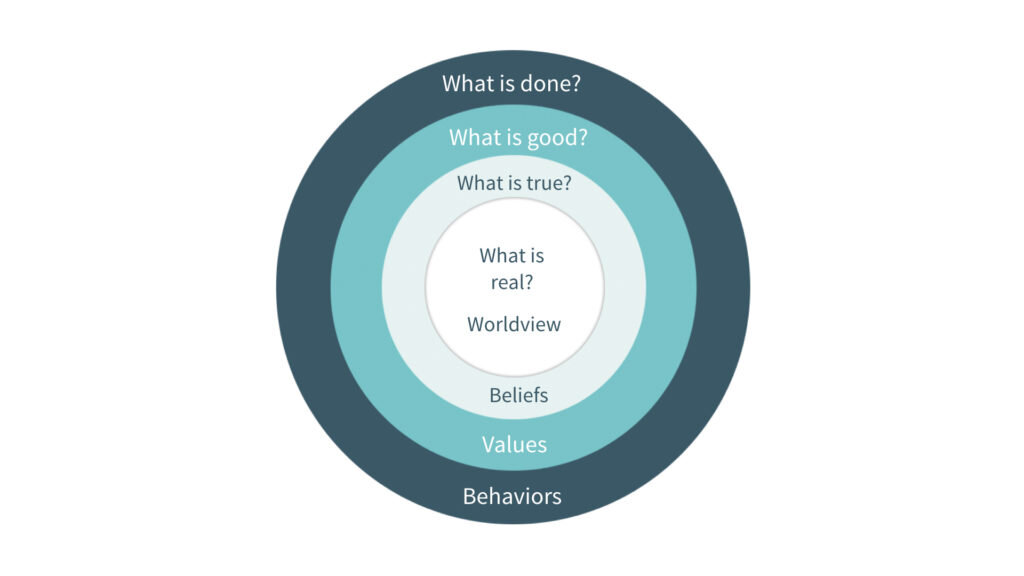
Pathway Learning Blog
Access our growing library of hundreds of blog posts covering topics relevant to church leaders. Preview and read these blog posts now.
SEARCH THE BLOG
Looking for something in particular? Search our hundreds of blog posts on topics of interest to church leaders.

Corporate Worship Services (Worship, Part 6)
In this final lesson in the Worship Course, we focus on a few principles and practices undergirding corporate worship services.

Wholehearted Worship: Existential Perspective (Worship, Part 5)
Jesus tells us that true worship is not about our outward behavior but the inward motivation of our heart. The heart includes our understanding, affections, and decisions. Worship that is wholehearted engages all three.

Cultural Perspective of Worship (Worship, Part 4)
Scripture prescribes some things regarding worship, but there are many things it doesn’t prescribe. When Scripture commands us to do something, but doesn’t instruct us exactly how to do it, we should use our God-given human reason guided by general biblical principles.

Biblical Perspective of Worship (Worship, Part 3)
We could invent all kinds of interesting ways we think God should be worshiped. But in the Bible God tells us what pleases and honors him in worship. Learn the difference between the first and second commandments and how that relates to worship.

Vertical and Horizontal Worship (Worship, Part 2)
Some believe that any human or horizontal focus in worship detracts from its God-centeredness and is therefore unbiblical and inappropriate. This idea sounds right, and there is truth in it, but it’s not biblical.
The Scriptures present us with a vertical and horizontal focus in worship. Our vertical focus in worship is on God and our horizontal focus is on others.

Broad and Narrow Worship (Worship, Part 1)
There are few places in Scripture where we see God seeking something. However, Jesus teaches that the Father is seeking true worshippers (John 4:23). And the Father is seeking your worship in both the broad and narrow sense.

Ultimate Answers: Worldview Part 2 (Philosophy of Ministry, Part 5)
How does the Gospel give us ultimate answers to the ancient questions asked by every generation?
Creation: Where did we come from?
The Fall: Why is there evil and suffering?
Redemption: What is our hope for the problem of evil?
Consummation: What lies beyond?

4 Ultimate Questions: Worldview Part 1 (Philosophy of Ministry, Part 4)
To see true transformation, we must bring people the Gospel in a way that answers the deepest questions they're asking about reality.
1. Question of Origin: "Where did we come from?"
2. Question of Evil: "How did things get so bad?
3. Question of Redemption: "What is our hope for the problem of evil?"
4. Question of Afterlife: "Is there anything that lies beyond?"
In this lesson, you'll learn how the gospel provides the ultimate answers to the worldview questions.

Going Deeper: Beyond Behavioral Change (Philosophy of Ministry, Part 3)
Gospel-centered leaders pray and strive to see Jesus Christ transform not only people’s behaviors, but also their deeper values, beliefs, and worldviews.
In this lesson, you will begin to explore the first three levels: Transformed behaviors, values, and beliefs.

Gospel + Church + Culture (Philosophy of Ministry, Part 2)
The problem we face today is that most church leaders are trained to study God's Word but they are not trained to study God's world. Church leaders must be not only a wise interpreters of God's Word but also a wise interpreters of God's world, particularly as it is uniquely manifested in the culture that their church is serving.

Philosophy of Ministry: Going Too Far or Far Enough? (Philosophy of Ministry, Part 1)
How far should we go in embracing cultural forms in order to find common ground for the sake of the gospel? In this lesson we'll begin exploring the answers to the question:
How can I contextualize the gospel without compromise?

Determining Your Outreach Styles (Styles, Part 6)
As church members, we’re called to reach out to our communities with the gospel in word and deed through two common approaches or styles: Gathering and Scattering. The first style focuses mostly on gathering people into the church through proclaiming the Word in evangelism. The second style focuses mostly on scattering people out of the church through serving the poor in acts of mercy. Both styles are needed.

Determine Your Fellowship Styles (Styles, Part 5)
Jesus said, "By this all people will know that you are my disciples, if you have love for one another” (John 13:35). Francis Schaeffer called the love Christians have for each other "the final apologetic." Whether you realize it or not, you have a structure for fellowship in your church. And building authentic Christian community depends significantly on the effectiveness of that structure.

Learning to Learn (Styles, Part 4)
In the Great Commission, Jesus did not instruct us merely to teach all his commandments. Instead, he told us to teach people how to obey all his commandments (Matt 28:18-20). There’s a big difference! common mistake leaders make in developing a church into a healthy learning community is the failure to identify the best styles and methods to maximize the learning experience of church members.

Determining Worship Styles (Styles, Part 3)
In determining your worship styles you will need to select a Biblically-based, culturally appropriate set of worship emphases, elements and models for your church. What will the Biblical purpose of worship look like in your worship styles?

Dangers of Under & Over-Adapting (Styles, Part 2)
Church leaders must be aware of two opposite and equally dangerous errors: under-adapting and over-adapting to their surrounding culture. To avoid these errors, you must learn how to contextualize the gospel through the ongoing dynamics of adapting and challenging that never stop.

Recognizing Risks (Styles, Part 1)
One of the top mistakes church leaders make is to choose ministry styles based on what they’ve seen and prefer, not on what will be most effective in their community. The result is tragic: Ministry styles become unnecessary barriers to transforming lives and communities. How do we avoid the two extremes of cultural compromise and isolation?

How To Keep Praying and Not Give Up (Prayer, Part 6)
Jesus teaches us that we should pray with persistent, shameless boldness especially when facing no answer. When God does not give you what you ask for, don't allow yourself to think that the Father is not loving you. Instead, learn how to obey Jesus' command to keep praying, keep trusting, and not give up.

Learning How to Pray from Jesus (Prayer, Part 5)
The Lord’s Prayer may be one of the best known, least understood and worst applied patterns for prayer ever given. Most of us don't really pray like this. Jesus means for his followers to find joy, purpose, and power by asking for God's name to be glorified, his kingdom to come, and his will to be done on earth as it is in heaven.

Prayer in the Book of Acts (Prayer, Part 4)
In the Book of Acts, we find the remarkable work of the ascended Jesus continuing to advance God’s kingdom on earth through the church by prayer. Christians are used to thinking about prayer as only a means to get their personal needs met. More mature Christians understand prayer as also a means to praise and adore God, to know him, to come into his presence and be changed by him. But there is another kind of prayer that is not well know. It is what we call Kingdom Prayer.
